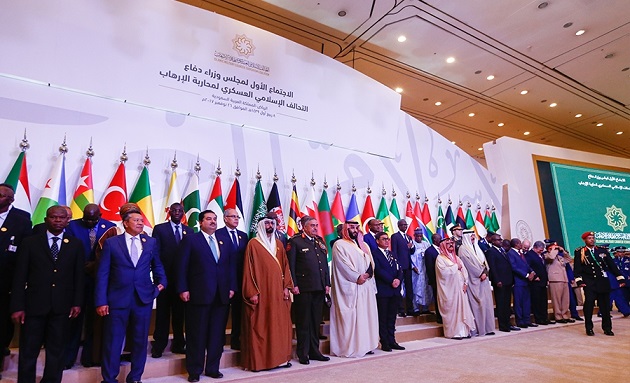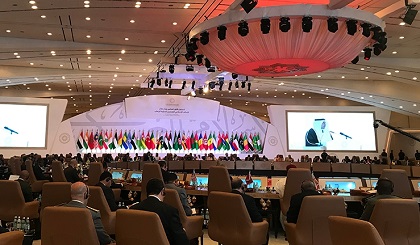One aim of the Islamic Military Counter Terrorism Coalition is that extremists no longer “tarnish our beloved religion”.
 The participants in the Riyadh Islamic Military Counter Terrorism Coalition gathering. / IMCTC
The participants in the Riyadh Islamic Military Counter Terrorism Coalition gathering. / IMCTC
Forty-one countries met on 26th November in a meeting to outline the agenda of the Islamic Military Counter Terrorism Coalition.
The gathering in Riyadh (Saudi Arabia) with Ministers of Defense was held just two days after the terrorist attack against a mosque in Egypt that killed 305 people and wounded at least one hundred.
Crown Prince Mohammed bin Salman said the new Islamic anti-terror alliance is “a strong signal that we are going to work together and coordinate together to support each other”.
“Today, we start the pursuit of terrorism and we see its defeat in many facets around the world especially in Muslim countries... We will continue to fight it until we see its defeat”, he added.
ISLAM AND VIOLENCE
One of the aims for the members countries is to try to disassociate Islam from violence.
“The biggest danger of this terrorism and extremism is the tarnishing of the reputation of our beloved religion... We will not allow this to happen”, the Saudi prince said.
Mohammad Al-Issa, Secretary General of the Muslim World League, spoke of the ideology behind the new organisation. According to Arab News, the IMCTC sees “the necessity of promoting a message that counters the narrative of violent extremist ideology and reaffirms Islamic principles of tolerance and compassion, through presenting the true nature of Islam and supporting ideological, psychological, and social reforms”.
 A IMCTC meeting i Riyadh. / IMCTC
A IMCTC meeting i Riyadh. / IMCTC
GREAT DEFICITS IN RELIGIOUS FREEDOM
Among the member states of the IMCTCT are Saudi Arabia, Afghanistan, Egypt, Jordan, Kuwait, Cote d’Ivoire, Lebanon, Morocco, Nigeria, Pakistan, Yemen, Turkey and the United Arab Emirates.
The coalition noticeably does not include Iran and Qatar, two political adversaries of Saudi Arabia.
Most countries taking part in this coalition against Islamic extremism severely restrict freedom of speech and religious freedom.
Somalia, Afghanistan, Pakistan, Yemen, Libya and Saudi Arabia, are all listed among the 15 worst countries in the world for Christians to live, according to Open Doors.

Las opiniones vertidas por nuestros colaboradores se realizan a nivel personal, pudiendo coincidir o no con la postura de la dirección de Protestante Digital.
Si quieres comentar o